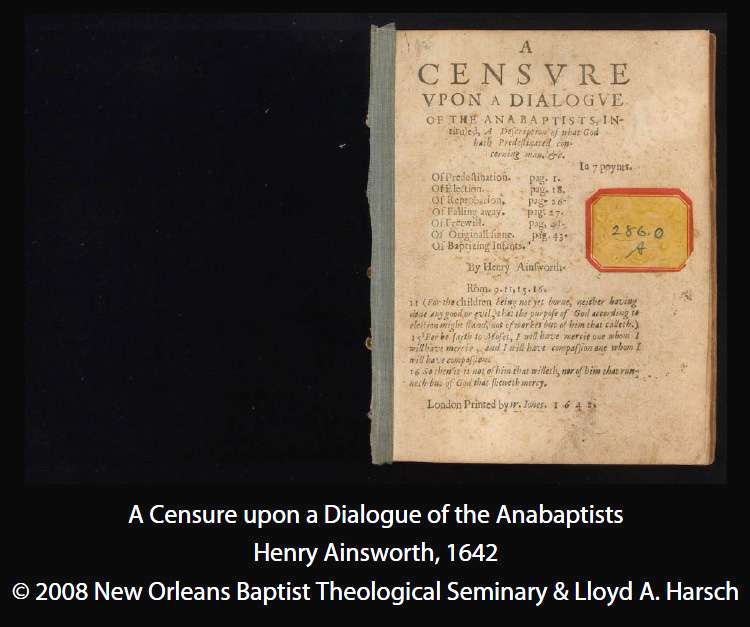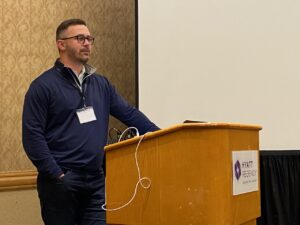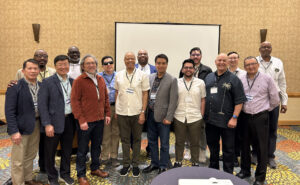
NEW ORLEANS (BP)–The Baptist Center for Theology and Ministry at New Orleans Baptist Theological Seminary has launched a new exhibit with downloadable digital copies of a series of rare theology documents.
The collection of 16th- and 17th-century documents, available at baptistcenter.com, includes articles written by Baptists and their critics.
“We want to make these rare original documents accessible to scholars of Baptist history and theology, wherever they are,” said Steve Lemke, the seminary’s provost who also directs the center. “In addition to the 20 manuscripts we currently have posted, we will be adding more documents in the next few months.”
Some of the earliest pamphlets available online include a critique of Anabaptists written by Philipp Melanchthon dated 1528 and a sermon by Martin Luther from 1532. Also offered are negative critiques of Baptists by Eberhardus of Cologne in 1536, Robert Some in 1589 and Lucas Osiander the Younger in 1607.
Most of the pamphlets for and against Baptists in the collection were written in the 1640s by authors including John Tombes, Andrew Ritor, John Etherington, Richard Barnard (Dwelphintramis), Daniel Featley, Robert Fage, William Hussey, Jasper Mayne, Friedrich Spanheim, Stephen Marshall, Thomas Bakewell and Thomas Blake.
Lloyd Harsch, associate professor of church history at NOBTS, specializes in Baptist heritage and has been digitizing the rarest and most important pamphlets from a collection recently rediscovered in the seminary’s archives.
“John T. Christian, a church historian and the original librarian at the NOBTS, gathered these pamphlets during his travels, collecting documents relating to Baptist beliefs and origins,” Harsch said.
Christian assembled hundreds of rare publications from Europe and North America. The works document the theological and ecclesiastical battles that waged during the era, including pamphlets that are for and against the Baptist position.
Although the documents were displayed in the library at one point, they were packed away and forgotten in some long-overlooked boxes. But an NOBTS library staff member rediscovered the rare works while cleaning a storage area a few years ago.
Wanting to preserve the rare pamphlets, Harsch applied digitization technology to the materials. The research and technology for the digitization effort and for a subsequent project related to Baptist confessions of faith were funded by three scholarly grants.
In 2003-04, Harsch and Stan Norman received a research expense grant from the Lilly Theological Research Program of the Association of Theological Schools titled “New Perspectives on Ancient Ideas: A Critical Analysis of Rare Theological Writings on Baptist Life and Thought.”
The funding for the digitization came through the 2006-07 theological scholars grant from the Lilly Theological Research Program titled “Out of Many Fellowships, One Family of Faith: The Collection and Digitization of Baptist Confessions of Faith,” and from an Ola Farmer Lenaz grant in 2007-08 (an in-house faculty research grant) titled “Digitizing Rare Baptist Historical Documents.”
Although delayed by Hurricane Katrina, Harsch spent more than a year studying digitization techniques and methods at the University of North Texas in order to produce the best electronic versions of the rare pieces.
“The digitization process will preserve these rare pamphlets in a stable format and make them widely available via the Internet,” Harsch said. “Some of these may be the only copies extant today, or one of only a few hard-to-find copies. Once the pamphlets are online, people will have access to digital copies of the actual original work.”
In addition to adding more old pamphlets relating to Baptists and Anabaptists, the center also intends to display digitized copies of key Baptist confessions of faith, another aspect of Harsch’s research.
“Our goal is to make these hard-to-find original documents accessible to scholars all over the world in order to promote the study and appreciation of our Baptist heritage,” Lemke said.
–30–
Christopher Black writes for New Orleans Baptist Theological Seminary.

















